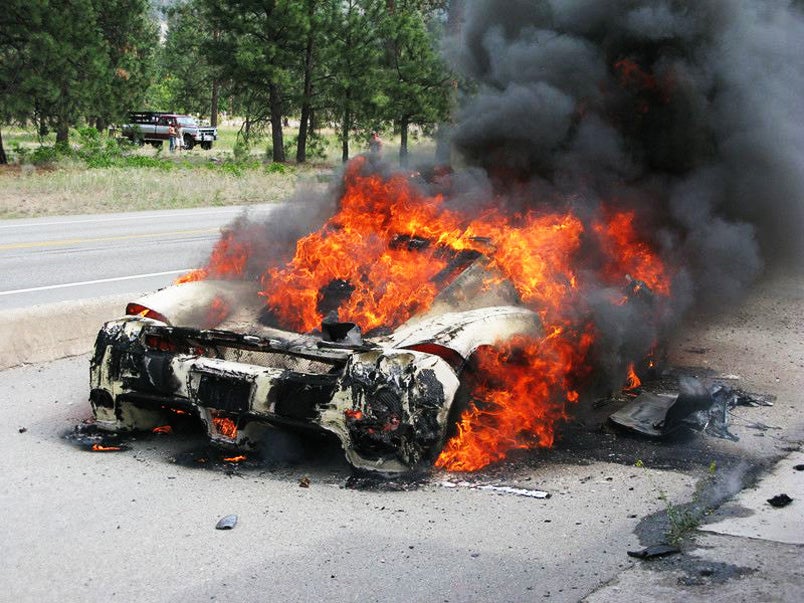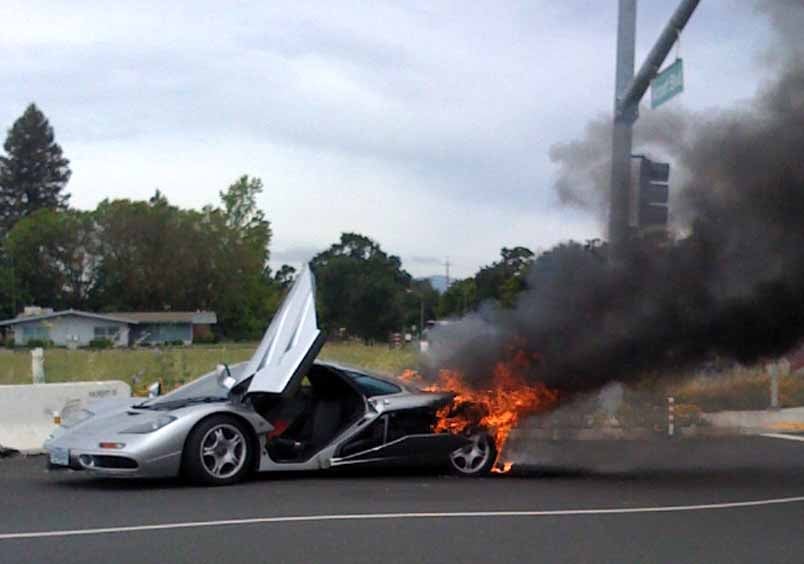Not a problem that I have yet, but a friend and I were talking today and started wondering how it works. When you're talking about a car whose value exceeds the cost of having the factory hand-build a complete and true replacement how do you insure it? Maybe you just have so much money you set aside a healthy amount to deal with it when it happens? Is it different for a guy like Ralph Lauren who doesn't seem to drive them much compared to a guy like Mr. Glickenhaus who takes great pride in piling on miles?
FWIW speculation is just as interesting as a correct answer to me.
Agreed upon value with the insurance company. Pretty easy actually. Until you get into really truly exotic stuff where you might self insure. You could write a 250GTO off more then a few times and never touch the current value with repairs.
I figured that was probably the case, but then started to wonder if they would even be insured as a car in the traditional sense (Lloyds of London or something). I guess it's a lot less complicated than I imagined it to be.
pushrod36 wrote:
I figured that was probably the case, but then started to wonder if they would even be insured as a car in the traditional sense (Lloyds of London or something). I guess it's a lot less complicated than I imagined it to be.
You can insure just about anything. I have friends who are surgeons who have effectively their hands insured if anything were to happen. Musical instruments, art, car when they get to a really high price point somebody is willing to take the insurance risk.
The thing is, when you get to that point where its worth more than the cost of building another one by hand, the vehicle itself is actually worthless, the VIN is what you're paying for.
IIRC there's actually a case of something like 3 different Porsche 917s sharing one VIN and Porsche considering them all authentic, I believe it started out as a wreck that was parted out and then the parts ended up becoming whole cars.
Kenny_McCormic wrote:
IIRC there's actually a case of something like 3 different Porsche 917s sharing one VIN and Porsche considering them all authentic, I believe it started out as a wreck that was parted out and then the parts ended up becoming whole cars.
Its more then just Porsche, there are more 23B lotuses with racing papers then they ever made cars period. Almost any car that has a value significant greater the the sum of its parts has something like this as a possibility.
Effectively yes you are just insuring the VIN but 99% of super high dollar cars are locked down pieces of art and insured that way. Short of the house burning down not much happens to them. Its astonishingly cheap to insure stuff this way. The guys who are active on the track or do timed rally are a whole different breed.
Many years ago when the Ferrari Enzo was still a new car I was talking to an owner about this subject. I forgot the actual figures, but when I multiplied up the value of my then Focus and it's insurance cost to the cost of the Enzo, his insurance was still cheaper as a % of MSRP even though it was something like $30-50K per year. It did have a mileage restriction on it, but considering the number of other Ferrari's he had it wasn't an issue. So I think the #'s a shocking until you pro-rate the value of the vehicle then they are not so nuts.

NOHOME
SuperDork
10/21/14 10:24 a.m.
Like all other insurance matters, they turn the actuarial hounds lose and out pops a dollar figure.
The replacement cost if it is stolen is the big number you would be afraid of. But how often does this really happen in the ultra-rare car world? Hence the risk is low and so is the premium. You can rebuild most of these cars from the ashes for under a million, so that is the risk exposure. How often do you see a super-car involved in a fender bender?... not often, hence low risk and reasonable rates.
In reply to NOHOME:
I'm guessing stolen is a rare thing, and those that are I'm all sure have hidden GPS trackers to help locate the. Accidents you can re-build the car for way less than market value. I see the biggest issue being fire. Thermal events seem to happen to high end exotics out of proportion with their production numbers. You can rebuild from a crash, this not so much so, so the ins company end up out of pocket for the full market 'value' to replace.



And the most heart breaking


WilD
HalfDork
10/21/14 10:56 a.m.
A related question: With these high dollar (or any dollar really) collector cars, we often hear about specialty insurance to insure the car. But, does this also include the legally mandated liability/injury insurance in states like MI? I'm always hearing about how I can save a lot of money with collector car insurance with a possible mileage and use restrictions, but I suspect I would actually still have to buy the standard policy from a State Farm or Geico to legally drive on the road plus the specialty policy to cover damages to the car.
In this state you can easily end up with an insurance bill in the thousands and get virtually no coverage for loss or damage to your vehicles. Virtually no coverage at all really... just the slip of paper that allows you to drive.
not multi million....
1965-66 Shelby's... nothing truly special there... just a vin and a mustang fastback

yamaha
UltimaDork
10/23/14 12:04 p.m.
In reply to Adrian_Thompson:
Actually, I'm more saddened by the Miura.

wspohn
HalfDork
10/23/14 3:10 p.m.
It is easy, even economical, to insure higher value cars, the trick is to have evidence of value and a policy that covers actual replacement value.
On my old stuff I usually get a qualified appraiser of old classic cars to do me up a market value appraisal and then provide it to the agent so they can raise any questions at that point.
If you don't do that, you can find yourself in the shoes of people I know that were left, even with stated value policies, trying to substantiate a value for a total loss, and that can be like trying to fight the government.







































